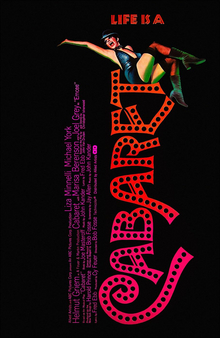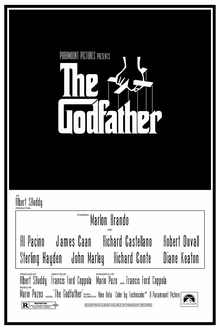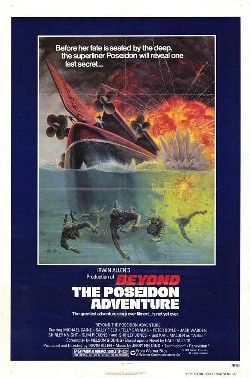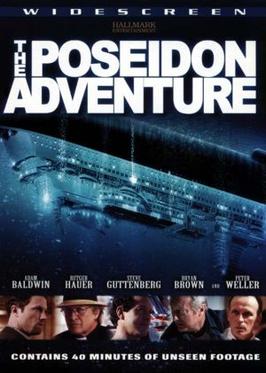
Charles Robert Redford Jr. is a retired American actor and filmmaker. He has received numerous accolades such as an Academy Award, a BAFTA Award, and two Golden Globe Awards, as well as the Cecil B. DeMille Award in 1994, the Screen Actors Guild Life Achievement Award in 1996, the Academy Honorary Award in 2002, the Kennedy Center Honors in 2005, the Presidential Medal of Freedom in 2016, and the Honorary César in 2019. He was named by Time as one of the 100 most influential people in the world in 2014.

Harold "Jack" Albertson was an American actor, comedian, dancer and singer who also performed in vaudeville. Albertson was a Tony, Oscar, and Emmy winning actor, which ranks him among a rare stature of 24 actors who have been awarded the "Triple Crown of Acting".’

The Towering Inferno is a 1974 American disaster film directed by John Guillermin and produced by Irwin Allen, featuring an ensemble cast led by Paul Newman and Steve McQueen. It was adapted by Stirling Silliphant from the novels The Tower by Richard Martin Stern and The Glass Inferno by Thomas N. Scortia and Frank M. Robinson. In addition to McQueen and Newman, the cast includes William Holden, Faye Dunaway, Fred Astaire, Susan Blakely, Richard Chamberlain, O. J. Simpson, Robert Vaughn, Robert Wagner, Susan Flannery, Gregory Sierra, Dabney Coleman and Jennifer Jones in her final role.

John Towner Williams is an American composer and conductor. In a career that has spanned seven decades, he has composed some of the most popular, recognizable, and critically acclaimed film scores in cinema history. He has a very distinct sound that mixes romanticism, impressionism, and atonal music with complex orchestration. He is best known for his collaborations with Steven Spielberg and George Lucas and has received numerous accolades including 26 Grammy Awards, five Academy Awards, seven BAFTA Awards, three Emmy Awards, and four Golden Globe Awards. With 54 Academy Award nominations, he is the second-most nominated person, after Walt Disney, and is the oldest Oscar nominee in any category, at 91 years old.

A disaster film or disaster movie is a film genre that has an impending or ongoing disaster as its subject and primary plot device. Such disasters may include natural disasters, accidents, military/terrorist attacks or global catastrophes such as a pandemic. A subgenre of action films, these films usually feature some degree of build-up, the disaster itself, and sometimes the aftermath, usually from the point of view of specific individual characters or their families or portraying the survival tactics of different people.

Cabaret is a 1972 American musical period drama film directed by Bob Fosse from a screenplay by Jay Allen, based on the stage musical of the same name by John Kander, Fred Ebb, and Joe Masteroff, which in turn was based on the 1951 play I Am a Camera by John Van Druten and the 1939 novel Goodbye to Berlin by Christopher Isherwood. It stars Liza Minnelli, Michael York, Helmut Griem, Marisa Berenson, and Joel Grey. Multiple numbers from the stage score were used for the film, which also featured three other songs by Kander and Ebb, including two written for the adaptation.

The Sherman Brothers were an American songwriting duo that specialized in musical films, made up of brothers Robert B. Sherman and Richard M. Sherman. Together they received various accolades including two Academy Awards and three Grammy Awards. They received nominations for a Laurence Olivier Award, a BAFTA Award, and five Golden Globe Awards. In 1976, they received a star on the Hollywood Walk of Fame, and the National Medal of the Arts in 2008.

Earthquake is a 1974 American ensemble disaster drama film directed and produced by Mark Robson and starring Charlton Heston and Ava Gardner. The plot concerns the struggle for survival after a catastrophic earthquake destroys most of the city of Los Angeles, California.

Paul William Gallico was an American novelist and short story and sports writer. Many of his works were adapted for motion pictures. He is perhaps best remembered for The Snow Goose, his most critically successful book, for the novel The Poseidon Adventure, primarily through the 1972 film adaptation, and for four novels about the beloved character of Mrs. Harris.

Robert Bernard Sherman was an American songwriter, best known for his work in musical films with his brother, Richard M. Sherman. The Sherman brothers produced more motion picture song scores than any other songwriting team in film history. Some of their songs were incorporated into live action and animation musical films including Mary Poppins, The Happiest Millionaire, The The Sword in the Stone, The Jungle Book, The Many Adventures of Winnie the Pooh, Chitty Chitty Bang Bang, The Slipper and the Rose, and Charlotte's Web. Their best-known work is "It's a Small World " possibly the most-performed song in history.
Irwin Allen was an American film and television producer and director, known for his work in science fiction, then later as the "Master of Disaster" for his work in the disaster film genre. His most successful productions were The Poseidon Adventure (1972) and The Towering Inferno (1974). He also created and produced the popular 1960s science-fiction television series Voyage to the Bottom of the Sea, Lost in Space, The Time Tunnel, and Land of the Giants.

Stella Stevens was an American actress. She is the mother of actor Andrew Stevens.
Poseidon is the god of the sea in ancient Greek mythology.

"The Morning After" is a song written by Al Kasha and Joel Hirschhorn for the 1972 film The Poseidon Adventure, winning Best Original Song at the 45th Academy Awards. Following this success, Maureen McGovern recorded a single version that became a No. 1 hit in the US for two weeks during August 1973, with Gold record sales. Billboard ranked it as the No. 28 song for 1973.

The Godfather is a 1972 American epic gangster film directed by Francis Ford Coppola, who co-wrote the screenplay with Mario Puzo, based on Puzo's best-selling 1969 novel of the same title. The film stars an ensemble cast including Marlon Brando, Al Pacino, James Caan, Richard Castellano, Robert Duvall, Sterling Hayden, John Marley, Richard Conte, and Diane Keaton. It is the first installment in The Godfather trilogy, chronicling the Corleone family under patriarch Vito Corleone (Brando) from 1945 to 1955. It focuses on the transformation of his youngest son, Michael Corleone (Pacino), from reluctant family outsider to ruthless mafia boss.

Poseidon is a 2006 American action disaster film directed and co-produced by Wolfgang Petersen. It is the third film adaptation of Paul Gallico's 1969 novel The Poseidon Adventure, and a loose remake of the 1972 film. It stars Kurt Russell, Josh Lucas and Richard Dreyfuss with Emmy Rossum, Jacinda Barrett, Mike Vogel, Mía Maestro, Jimmy Bennett and Andre Braugher in supporting roles. It was produced and distributed by Warner Bros. in association with Virtual Studios. It had a simultaneous release in IMAX format. It was released on May 12, 2006, and it was criticized for its script but was praised for its visuals and was nominated at the 79th Academy Awards for Best Visual Effects. It grossed $181.7 million worldwide on a budget of $160 million; however, after the costs of promotion and distribution, Warner Bros. lost $70–80 million on the film, making it a box-office bomb as a result.

Beyond the Poseidon Adventure is a 1979 American disaster film and a sequel to The Poseidon Adventure (1972) directed by Irwin Allen and starring Michael Caine and Sally Field. It was a critical and commercial failure, and was the only Allen disaster film to receive no Academy Award nominations. Its box office receipts were only 20% of its estimated $10 million budget.

The Poseidon Adventure is an American adventure novel by Paul Gallico, published in 1969. It concerns the capsizing of a luxurious ocean liner, the S.S. Poseidon, due to an undersea earthquake that causes a 90-foot (27-meter) wave, and the desperate struggles of a handful of survivors to reach the bottom of the liner's hull before the ship sinks.

The Poseidon Adventure is a 2005 American made-for-television disaster film based on Paul Gallico's 1969 novel of the same name. It is a loose remake of the 1972 film of the same name and its 1979 sequel.

Ice Age is an American media franchise centering on a group of mammals surviving the Pleistocene ice age. It consists of computer-animated films, short films, TV specials and a series of video games. The first five films were produced by Blue Sky Studios and distributed by its then parent company 20th Century Fox. The series features the voices of Ray Romano, John Leguizamo, Denis Leary and Chris Wedge, who were the only constant cast members for the original films.

















